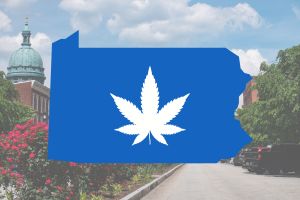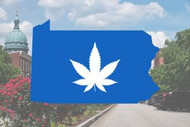Is Hemp Legal in Pennsylvania?
Posted by Tweedle Farms on Jul 1st 2022

In recent years, the hemp industry has witnessed a remarkable resurgence, driven by the growing demand for CBD products (including things like CBD flower, pre rolls, CBD wax, and more) and the relaxation of hemp-related regulations across the United States. Pennsylvania, like many other states, has undergone significant changes in its hemp policy to align with the federal guidelines set forth in the 2018 Farm Bill. This blog post aims to provide a thorough understanding of the current legal landscape surrounding hemp and CBD products in the state of Pennsylvania.
The 2018 Farm Bill: A Turning Point
The Agriculture Improvement Act of 2018, commonly known as the 2018 Farm Bill, was a pivotal moment in the history of hemp policy in the United States as well as for the wider impression of hemp flower in the country's consciousness. This legislation removed hemp from the list of controlled substances and reclassified it as an agricultural commodity. Under the Farm Bill, hemp is defined as cannabis with a THC (tetrahydrocannabinol) content of 0.3% or less by dry weight.
Pennsylvania's Response
Pennsylvania, a state with a rich history of agriculture, embraced the opportunity presented by the 2018 Farm Bill to revitalize its hemp industry. The state moved swiftly to align its regulations with federal law, paving the way for the legal cultivation, processing, and sale of CBD hemp flower and hemp-derived products, including CBD gummies, CBD oils, CBD wax, and more.
Hemp Cultivation and Licensing
Pennsylvania's Department of Agriculture oversees the hemp cultivation program in the state. Prospective hemp growers are required to obtain a permit from the department, which involves a comprehensive application process. This process includes background checks, field site testing, and compliance with specific cultivation practices. Once approved, growers can cultivate hemp flower for various purposes, including the production of CBD.
CBD Legalization and Regulation
The legality of CBD and CBD flower in Pennsylvania is closely linked to its source – whether it is derived from hemp or marijuana. Hemp-derived CBD is explicitly legal in the state, provided it meets the federal requirement of containing no more than 0.3% THC. This has led to an influx of CBD products, ranging from smokable hemp flower and oils to edibles and topicals, becoming widely available throughout Pennsylvania.
However, it's important to note that CBD derived from marijuana, which contains higher levels of THC, remains illegal for recreational use in Pennsylvania. Medical marijuana is legal in the state, but it is subject to a separate set of regulations and is available only to registered patients with qualifying medical conditions.
Retail and Consumer Considerations
Consumers interested in purchasing CBD products like hemp flower and CBD gummies in Pennsylvania should exercise caution and due diligence. With the surge in popularity of CBD, the market has seen its fair share of unscrupulous manufacturers and sellers. It is advisable to seek products from reputable sources that provide third-party lab testing to verify CBD content and ensure the absence of harmful contaminants.
Challenges and Opportunities
While Pennsylvania has made significant strides in aligning its hemp policy with federal regulations, challenges remain. One of the major challenges is the lack of uniformity in CBD regulations across different states, leading to confusion for businesses and consumers alike. Additionally, there is ongoing debate about the potential health benefits and risks associated with CBD consumption, prompting the need for further research and clarity.
On the flip side, the legalization of hemp and CBD has opened up new economic opportunities for Pennsylvania. From farmers and processors to retailers and researchers, various sectors are benefiting from the growth of the hemp industry. The state's agricultural heritage is being revitalized, and innovative products are emerging to meet consumer demands.
The future of hemp and CBD in Pennsylvania is promising, as the industry continues to evolve and mature. Legislative efforts are underway to refine existing regulations, promote research, and provide more clarity for businesses and consumers. As federal and state laws continue to develop, Pennsylvania's role in the hemp industry is likely to expand, contributing to economic growth and innovation.
The legalization of hemp flower and CBD products in Pennsylvania represents a significant shift in policy that has far-reaching implications for various stakeholders. The state's proactive approach in aligning its regulations with federal law has laid the groundwork for a thriving hemp industry. Consumers can now access a wide range of CBD products, while businesses have the opportunity to contribute to economic growth and agricultural revitalization. As Pennsylvania navigates the evolving landscape of hemp and CBD, continued collaboration between regulators, industry players, and researchers will be key to ensuring the responsible and sustainable development of this burgeoning sector.



